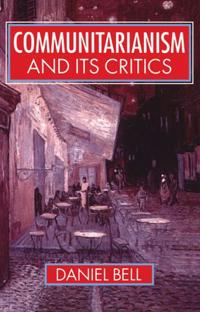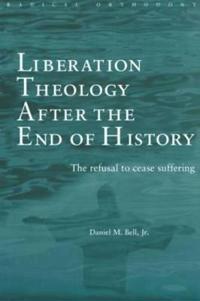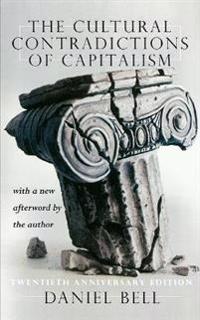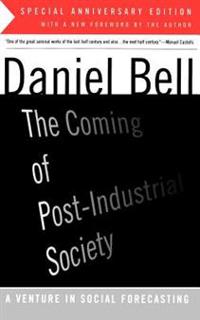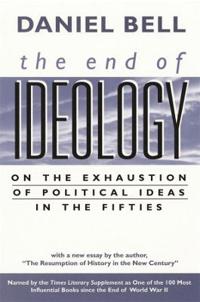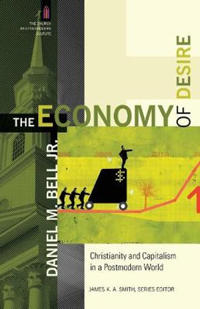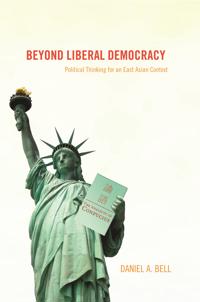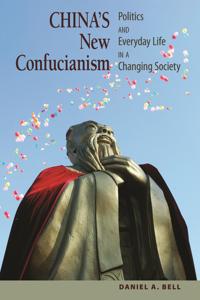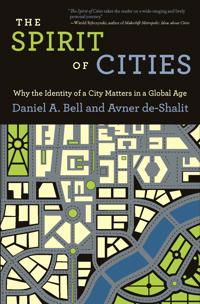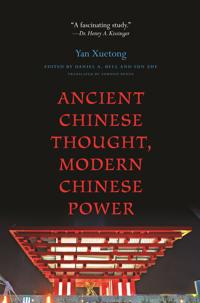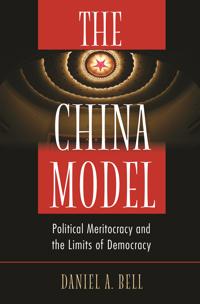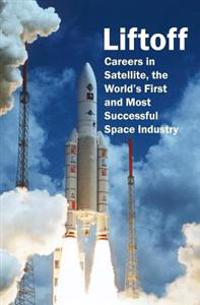Communitarianism and Its Critics (Häftad)
avDaniel Bell
ISBN: 9780198279228 - UTGIVEN: 199309Many have criticized liberalism for being too individualist, but few have offered an alternative that goes beyond a vague affirmation of the need for community. In this entertaining book, written in dialogue form, Daniel Bell fills this gap, presenting and defending a distinctively communitarian the[...]
Liberation Theology After the End of History (Häftad)
avDaniel Bell
ISBN: 9780415243049 - UTGIVEN: 200108What has become of Latin American liberation theology in the wake of capitalism's triumph? What has happened to the 'irruption of the poor'? Is it dead? More importantly, has Christianity been exhausted as a font of resistance to capitalism? What resources of hope remain? Liberation Theology after t[...]
The Cultural Contradictions of Capitalism (Häftad)
avDaniel Bell
ISBN: 9780465014996 - UTGIVEN: 199609Since its original publication in 1976, "The Cultural Contradictions of Capitalism" has been hailed as an intellectual tour de force that redefines how we think about the relationships among economics, culture and social change. Daniel Bell, the author of such other modern classics as "The End of Id[...]
The Coming of Post-industrial Society (Häftad)
avDaniel Bell
ISBN: 9780465097135 - UTGIVEN: 197606In 1976, Daniel Bells historical work predicted a vastly different society developingone that will rely on the economics of information rather than the economics of goods. Bell argued that the new society would not displace the older one but rather overlie some of the previous layers just as the in[...]
The End of Ideology (Häftad)
avDaniel Bell
ISBN: 9780674004269 - UTGIVEN: 200011"The End of Ideology" has been a landmark in American social thought, regarded as a classic since its first publication in 1962. Daniel Bell postulated that the older humanistic ideologies derived from the 19th and early 20th centuries were exhausted, and that new parochial ideologies would arise. I[...]
Economy of Desire (Häftad)
avDaniel Bell
ISBN: 9780801035739 - UTGIVEN: 201211In this addition to the award-winning Church and Postmodern Culture series, respected theologian Daniel Bell compares and contrasts capitalism and Christianity, showing how Christianity provides resources for faithfully navigating the postmodern global economy.
Bell approaches capitalism and Chr[...]East Meets West: Human Rights and Democracy in East Asia (Pocket)
avDaniel A. Bell
ISBN: 9780691005089 - UTGIVEN: 2000-05-08Beyond Liberal Democracy (Häftad)
avDaniel A. Bell
ISBN: 9780691123080 - UTGIVEN: 200607Is liberal democracy appropriate for East Asia? In this provocative book, Daniel Bell argues for morally legitimate alternatives to Western-style liberal democracy in the region. "Beyond Liberal Democracy", which continues the author's influential earlier work, is divided into three parts that corre[...]
China's New Confucianism (Häftad)
avDaniel A. Bell
ISBN: 9780691145853 - UTGIVEN: 201003What is it like to be a Westerner teaching political philosophy in an officially Marxist state? Why do Chinese sex workers sing karaoke with their customers? And why do some Communist Party cadres get promoted if they care for their elderly parents? In this entertaining and illuminating book, one of[...]
The Spirit of Cities (Inbunden)
avDaniel A. Bell, Avner De-Shalit
ISBN: 9780691151441 - UTGIVEN: 201108Cities shape the lives and outlooks of billions of people, yet they have been overshadowed in contemporary political thought by nation-states, identity groups, and concepts like justice and freedom. "The Spirit of Cities" revives the classical idea that a city expresses its own distinctive ethos or [...]
Spirit of Cities, The: Why the Identity of a City Matters in a Global Age (Pocket)
avDaniel A. Bell, Avner De-Shalit
ISBN: 9780691159690 - UTGIVEN: 2013-10-27Ancient Chinese Thought, Modern Chinese Power (Pocket)
avYan Xuetong, Daniel A. (EDT) Bell, Sun (EDT) Zhe
ISBN: 9780691160214 - UTGIVEN: 2013-08The rise of China could be the most important political development of the twenty-first century. What will China look like in the future? What should it look like? And what will China's rise mean for the rest of world? This book, written by China's most influential foreign policy thinker, sets out a[...]
The China Model (Inbunden)
avDaniel A. Bell
ISBN: 9780691166452 - UTGIVEN: 2015-06Westerners tend to divide the political world into "good" democracies and "bad" authoritarian regimes. But the Chinese political model does not fit neatly in either category. Over the past three decades, China has evolved a political system that can best be described as "political meritocracy." The [...]
Liftoff: Careers in Satellite, the World's First and Most Successful Space Industry (Häftad)
avDaniel Fryer, Robert A. Bell, Tamara E. Bond
ISBN: 9781466402522 - UTGIVEN: 2012-05

